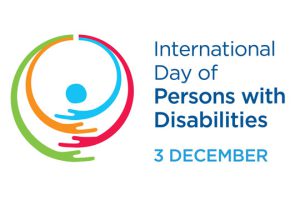
The 3rd of December is International Day of Persons with Disabilities, a day that aims to promote the rights and wellbeing of persons with disabilities in all areas of society. Children are our future and that future should be an inclusive one, in which children with disabilities can enjoy the same human rights and freedoms as others.
According to Scope around 8% of children in the UK are disabled, but this figure could be higher as often neuro-development problems don’t come to light until a child reaches school age (around the age of 5). Children with disabilities typically wait longer to be adopted, which can often be down to a lack of knowledge around the different types of disabilities and what will be required to meet their needs.
Children in care can sometimes have learning disabilities. Possible causes can include neglect, drug or alcohol abuse during pregnancy, genetic conditions and illness or injury during childhood.
Here are some of the disabilities that children who need adopting may have:
FASD (Foetal Alcohol Spectrum Disorder) sometimes referred to as Foetal Alcohol Syndrome Disorder – FASD can occur when a mother drinks alcohol during pregnancy. This can have an effect on the development of all cells and organs of the baby but in particular, the brain. This can lead to lifelong cognitive, emotional and behavioural challenges as well as conditions that affect the whole body. FASD affects more people than autism but often goes undiagnosed. Early diagnosis and the right support can make a huge difference to those with FASD. To find out more about FASD visit www.nationalfasd.org.uk
Autism – Autism is a lifelong developmental disability that affects how people communicate and interact with the world around them. Autism is a spectrum disorder which means it affects people in different ways. People with autism often:
- Find social communication and interaction challenging
- Show repetitive behaviours
- Have over-or under-sensitivity to sounds, touch, tastes, smells, light, colours, temperatures or pain
- Suffer from anxiety
- Have meltdowns or shutdowns
- Have highly focused interests or hobbies
However, because it is a spectrum disorder, the level of support they require can differ. Visit www.autism.org.uk to find out more.
Down’s Syndrome – Down’s Syndrome is when you are born with an extra chromosome. People with Down’s Syndrome will experience some level of learning disability. As this varies between individuals so does the level of support they require. With the right care, people with Down’s Syndrome can have a life expectancy of 50-60 years and can go on to live full, semi-independent lives. For more information on Down’s Syndrome visit www.downs-syndrome.org.uk
Cerebral Palsy – Cerebral Palsy can occur if the brain is injured at any time from pregnancy to age five and affects muscle control and movement. Like most disabilities, cerebral palsy affects each person differently. Cerebral palsy can affect movement, learning, speaking and all areas of the body. Support and treatments such as physiotherapy, speech therapy and occupational therapy can help people with cerebral palsy to be as active and independent as possible. To find out more about cerebral palsy visit www.scope.org.uk/advice-and-support/cerebral-palsy-for-young-people
As part of the adoption process, our experienced team will talk you through how to meet the needs of a child and what support will be available to you, should you choose to adopt a child with a disability. We will recognise your child as an individual who has strengths, talents and potential.
We also support our adopters in accessing any relevant assessments and financial support they may need through the adoption process and can continue this support after a child has been placed.
We know that disability support services can be complex to navigate so at AFA we use our experience to work in partnership with or if necessary, appropriately challenge, partner agencies to secure the right support for our adoptive families.
If you are thinking of adopting a child with complex needs and would like to find out more, please get in touch with us by completing our online contact form or calling us on 0800 5877 791.
